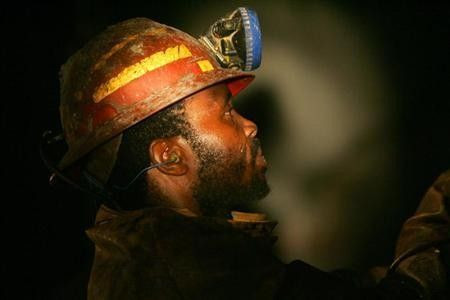Chinese firms abusing Zambian miners: rights group

Chinese mining companies in Zambia, Africa's biggest copper producer, are routinely flouting laws designed to protect workers' safety and the right to organise, Human Rights Watch (HRW) said on Thursday.
In a report likely to pile more pressure on Chinese firms to tighten up labour practices, the New York-based body urged newly-elected Zambian President Michael Sata to follow through on campaign promises to stamp out abuse of workers in the sector.
China's Foreign Ministry dismissed the report, saying Beijing had been working closely with African countries to ensure all cooperation was beneficial to both sides, and that workers' rights were protected.
We have promoted employment there and contributed to the economic and social development of African countries, spokesman Hong Lei said.
The 122-page study detailed persistent abuses in Chinese-run mines, including poor health and safety conditions, and regular 12-hour and even 18-hour shifts involving arduous labour -- all in violation of Zambian law.
Furthermore, HRW said mine bosses routinely threatened to fire workers who refused to work in dangerous locations underground or tried to report their grievances to mining regulators.
The four Chinese-run copper mining companies in Zambia are subsidiaries of China Non-Ferrous Metals Mining Corporation (CNMC), a state-owned enterprise.
CNMC denied the allegations, saying miners' safety was its highest priority and that the company had achieved an unprecedented 26 months without any fatal accidents from September 2006 to October 2008.
COPPER KEY
Copper mining is the lifeblood of the landlocked southern African nation's economy, contributing nearly three-quarters of its foreign exchange earnings, while China is the biggest investor, having sunk more than $2 billion into the sector.
China's significant investment in Zambia's copper mining industry can benefit both Chinese and Zambians, said Daniel Bekele, HRW's Africa director.
But the miners in Chinese-run companies have been subject to abusive health, safety, and labour conditions and long-time government indifference.
Opposition leader Sata came to power in September on the back of a populist election platform that included virulent criticism of Chinese mining investment.
Since taking office, he has toned down his rhetoric and stressed the need for foreign investment, but has made clear that all companies must observe labour laws.
After his victory, analysts said Sata was unlikely to make drastic changes for fear of derailing an industry goal of doubling annual copper output to 1.5 million tonnes by 2016 -- an increase that will also enrich Zambia's treasury.
Other mining firms in Zambia include Canada's First Quantum Minerals and Barrick Gold, London-listed commodity giant Glencore and Vedanta Resources, South Africa's Metorex.
HRW said its research was based on three field visits between November 2010 and July 2011 and drew on more than 170 interviews with workers from both Chinese and other companies.
Eleven workers were shot and wounded during a pay dispute at a Chinese-run mine last year, though attempted murder charges against two Chinese managers were later dropped.
Five other miners were hurt during a similar confrontation at a different mine in 2005.
© Copyright Thomson Reuters 2024. All rights reserved.





















